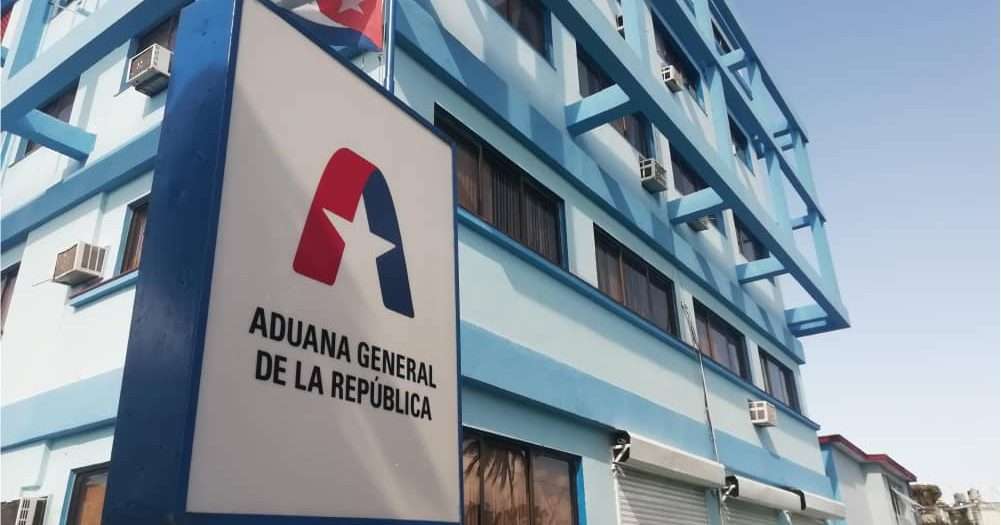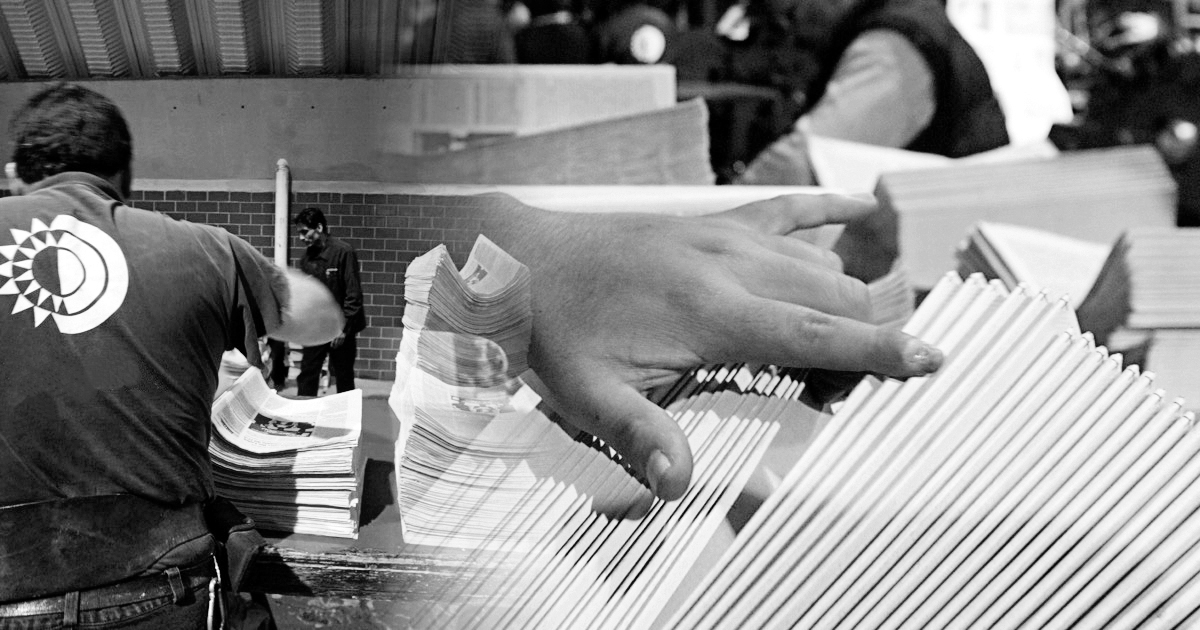Among the agencies of the Cuban State administration, the General Customs of the Republic (AGR) is probably one of those that accumulates the most dissatisfaction among those to whom it provides service. Perhaps because it has the unpleasant task of preventing the importation of goods with the consequent confiscation of these at the border.
For economic and human reasons, it is understood that no traveler who arrives in Cuba, resident on the island or not, wants the merchandise they bring to be confiscated. The worst thing is that many times certain limitations in force in the country cannot be understood either.
It is legislated, yes. And the law must be followed. But the normative always manages to go one step behind reality. And in terms of customs in Cuba, what has been established has managed to distance itself to a large extent from the concrete needs of the evolution of the economic and social crisis on the Island.
How have you achieved it? Well, ignoring the claims of those who travel to the island, and that in the midst of the scarcity of basic supplies that has gradually worsened, they have expressed their claims for the relaxation of importsat least of those products and resources that practically cannot be found in the national market.
However, although the AGR is responsible for enforcing what is legislated in terms of limiting imports and shipments, decision-making does not depend solely on it.
Who says yes or no, and why and when
The main functions of Customs are the collection of taxes for the State and the maintenance of the security of the country from the inspection of imports.
The entity can also define what enters Cuba. But, although it is unknown by many, together with it also the National Assembly, the Council of State, the Council of Ministers and the ministries -bodies endowed with the power to issue legal norms-, determine what happens or not through national borders.
Therefore, although it is the AGR that is always required to relax what is established, it is not always in its hands to implement or change what is legislated.
In practice, this body does define the quantities and the border valuation of imports. However, the Ministry of Agriculture decides what foods can cross the border; the Ministry of Health is the one who regulates everything related to medicines and medical supplies; and the Ministry of Finance and Prices (MFP) is the only body with the power to impose a payment exemption on goods brought by travelers, just to mention a few.
It is also true that similar regulations are not only put into practice in Cuba. Each country regulates at its borders the entry of products that can threaten its domestic trade.
It is a common and international policy. Only that in the Cuban context the import barriers reach all products. If not in terms of taxes, yes in terms of amounts admitted.
The law and the crisis
The facts speak for themselves. The context of the most recent crisis on the Island —which began at the end of 2018— has shown a tendency to deteriorate economic and social conditions, with a worsening of the scarcity of means and basic goods.
In proportion to the progress of the crisis, the claims of travelers and family members have been increasingly focused on the need to relax the restrictions on the importation of missing or scarce goods that are commonly used.
Well, with a particularly depressed domestic market, the products that arrive from abroad brought by natural persons or through parcel shipments constitute a relief for entire families.
In this way, the main demands have demanded the relief of imports by natural persons of the most sensitive and vital merchandise in a scenario of deep famine; Basically: medicines, food, cleaning, equipment to generate energy, household appliances and electronic equipment.
And although the reason for the regulation of these and other products on the national border responds to the protection of the Cuban internal market, the peculiarities of our reality and the needs of our people must be what prevails in decision-making.
However, in Cuba, neither the expansion of unsatisfied domestic demand, nor the fair requests of travelers to avoid confiscations of necessary products were enough to correct the regulations, when the letter of the law was inconsistent with the country’s crisis.
Only when the social demonstration sufficiently tensed the already critical situation, the July 11, 2021customs restrictions began to be gradually and moderately eased.
Since then and until September 2022, the agencies with the power to do so have announced more than six modifications to import regulations, some of which are far-reaching.
Never before in such a short period of time —little more than a year— has the strict Cuban customs legislation been so amended in response to social demands.
The measure of relief
The implemented measures present themselves. The first of these, long requested, entered into force on July 19, 2021. It was the exemption from payment and limitation of quantities approved by the MFP for the importation of food, hygiene and medicines to natural persons, and without commercial character, by way of passengers as accompanied luggage.
It was initially arranged for six months, but has been extended on two subsequent dates and remains valid until December 2022.
As a complement, in August of this year the National Center for Animal Health (Cenasa), belonging to the Ministry of Agriculture (Minag), relaxed the regulations Sanitary regulations for importation by travelers of milk and other canned foods of animal origin and sausages, as well as powdered milk. Y approvedone month later, imports of fresh vacuum-sealed meats from eligible countries.
Another issue of high sensitivity in current times was taken into account by making the importation of equipment to generate energy more flexible. On July 28, 2021, the MFP and the Ministry of Energy and Mines authorized the non-commercial entry of photovoltaic systems, their parts and fundamental pieces by natural persons.
In September of this year and given the sustained generation deficit of the National Electroenergetic System (SEN), the Cuban Customs allowedExceptionally, non-commercial imports, above the value established for air, sea, postal and courier shipments, of power plants with a power greater than 900 watts.
Along with the entry of this type of equipment to generate energy, the importation of other household appliances, whose restriction generated great unpopularity among travelers, was eased.
In September 2021, the AGR eliminated the limitation to the non-commercial entry by natural persons of some electrical appliances, as well as their parts and fundamental pieces, among which are kitchens and electric burners for domestic use of any type or model and air conditioners greater than one ton of ability.
Finally, the measures with the widest impact came into force on August 15. They were those that modified the laws for the clearance of goods in customs for non-commercial imports and relaxed the quantities of some specific products, such as cell phones and bicycle and car tires, among others, expanding the figures previously allowed.
On customs and the measures announced in Cuba: better later…
This package of rules included changes to the valuation of goods brought by passengers or sent by parcel. They imposed the method of valuation by weight, which in practice contributes to speeding up customs clearance and reducing the passenger’s time at the airport for this concept. Meanwhile, the amount of merchandise that can be sent to Cuba free of charge by parcel service doubled.
Taken together, all these customs provisions favor the traveler. All have taken into account their dissatisfactions and have tipped the balance, finally, towards improving the difficult living conditions of Cuban families.
They are not all that are needed, however. Other elements remain to be considered in order to contribute to the well-being of Cubans. For example, it would be possible to establish at least a temporary exemption from import payments for conventional bicycles and their parts and pieces, to mitigate transport deficiencies and the inability of the national industry to sell them in Cuban pesos. The entry of water filters and any equipment intended to purify it could also be exempted from payment, which would be consistent with the difficulties in supplying quality water to the entire population.
And so, these or others, all changes aimed at solving needs are welcome. It is enough for the AGR and the rest of the organisms to decide objectively and promptly how to direct us towards the exit of this crisis, or rather, of this labyrinth. It’s time.






